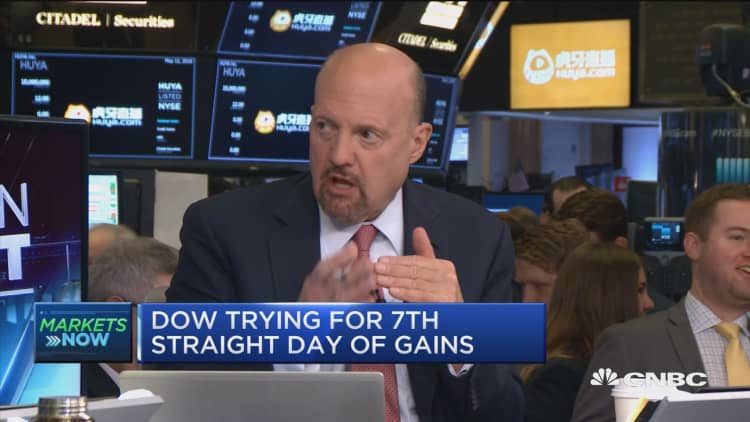
Prices for many prescription drugs may be high, but CNBC's Jim Cramer argued Friday they might be worth the cost.
"Some of the drugs are lifesaving," Cramer said on "Squawk on the Street." "That's very hard to put a price on."
Cramer's comments came ahead of President Donald Trump's scheduled announcement Friday afternoon of a plan aimed at cutting prescription drug costs.
Currently, Medicare Part D plans receive a discount from drug manufacturers. Under the Trump plan, the discounts would be shared with patients.
In 2015, Medicare drug spending reached $162 billion, according to data from the Centers for Medicare and Medicaid Services, a price many consumers believed was too high.
But Cramer, who described himself as "more pro-pharma than most," said the drug companies "do a lot of good."
While some prescription drug prices have soared, particularly those that treat rare diseases, Cramer said the cost of treating chronic pain without them would be much more expensive to insurance companies — and patients — over time.
One example is Gilead Sciences, the biopharmaceutical company that developed in 2014 a pill to treat Hep C. With a price tag of $84,000, the treatment is not cheap. But Cramer argued the prolonged maintenance of the disease would be much higher. "Then you're done."
In addition, research and development of new drugs is an expensive endeavor, one that often fails.
"Whenever you have this niche group, it's very difficult because you don't have a lot of companies that want to make that drug," Cramer said.
"These drugs cost billions of dollars and then sometimes when they get to phase three they fail," he said. "I think it's much more of a roulette game. A lot of these things just fail after they spend fortunes on them. So shouldn't [the pharmaceutical companies] be compensated?"
But on the other side of that argument are patients who find it difficult to make ends meet. Willie Dawson, 78, told CNBC she has to juggle her bills to pay for the dozen or so medications she takes to treat conditions that include hypertension and chronic obstructed pulmonary disease.


